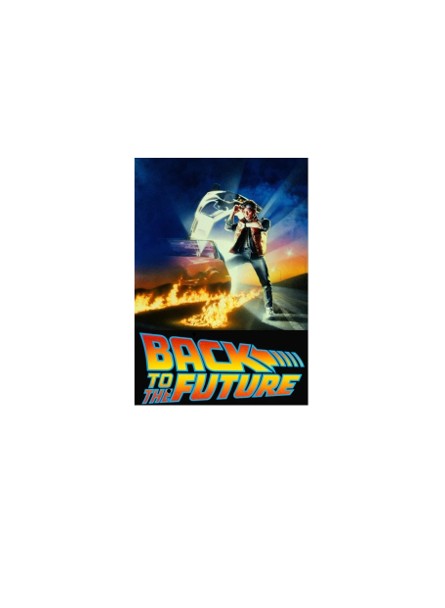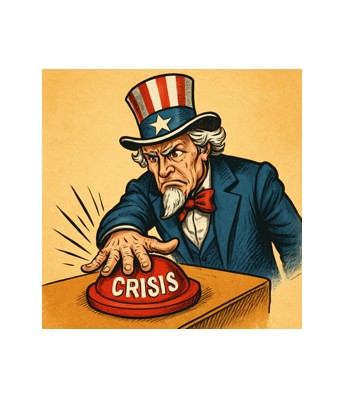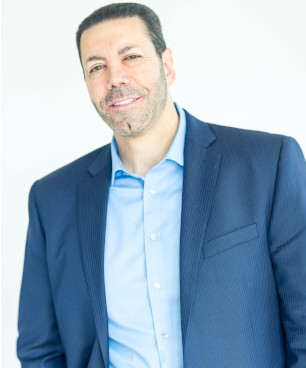Weekly Blog #15
“By 2045, we will reach the singularity—the point at which artificial intelligence surpasses human intelligence.” Ray Kurzweil
In 2005, futurist and inventor Ray Kurzweil predicted that humanity would reach the “singularity”—the moment when artificial intelligence overtakes human intellect—by 2045. Two decades later, that forecast no longer sounds like science fiction. It’s increasingly likely we’ve already crossed that threshold without realizing it.
AI is no longer confined to Silicon Valley labs or science-fiction plots. It’s here—writing code, drafting contracts, interpreting medical scans, and even pricing real estate. It’s learning faster than regulators can regulate and faster than most industries can adapt. Kurzweil’s prediction of exponential growth wasn’t hype—it was a warning. And exponential progress, by definition, looks linear right up until it explodes.
Every era of human progress has been defined by disruption. The 19th century brought steam engines, mechanized factories, and electrified cities. The early 20th introduced automobiles, airplanes, and assembly lines. Mid-century gave us television and computers. The Internet and mobile revolutions rewired how we live, work, and communicate. Each breakthrough made others obsolete. Blacksmiths and stable owners vanished with the automobile. Telephone operators disappeared overnight. Travel agents—once indispensable—were replaced by apps. Yet while innovation destroys some jobs, it consistently creates new ones—often better-paying and more fulfilling—for those willing to adapt. The lesson is simple: technology doesn’t eliminate opportunity. It transfers it.
The difference today is speed. What once took generations now happens in real time. Electricity took fifty years to reach most American homes; smartphones did it in ten. AI is advancing even faster. What used to be a decade’s progress can now occur in a single quarter. Routine, repetitive, and rules-based work is disappearing first. Self-driving fleets threaten truckers and cabbies. Administrative roles are being absorbed by virtual assistants. Even white-collar professions—radiology, accounting, law, software development—are feeling the tremors. AI doesn’t just automate; it learns, reasons, and improves. That’s a first in human history. This wave of automation won’t stop at blue or white-collar; it’s coming for routine-collar—any job that can be systematized, regardless of what color shirt you wear or diploma that adorns your office wall.
For real estate and mortgage professionals, the implications are enormous. Algorithms already transform how properties are valued, marketed, and financed. Predictive analytics assess credit risk with more nuance than FICO ever could. Title companies use blockchain to verify ownership and prevent fraud. Agents deploy AI-driven CRMs that spot likely sellers months before they list. Lenders pre-underwrite files, quote rates, and generate disclosures in minutes instead of days. These tools don’t replace professionals—they amplify them. Just as GPS didn’t eliminate drivers but made them more efficient, AI won’t replace brokers or loan officers who embrace it. Instead, it will widen the gap between those who adopt technology and those who resist it. The “average producer” will struggle to compete with peers who integrate automation, data, and digital intelligence into daily workflow.
Technology has never been the enemy—it’s a tool, and tools extend human capability. The printing press didn’t end writing; it democratized it. The calculator didn’t eliminate math; it liberated mathematicians from drudgery. AI will do the same for today’s professionals—if they see it as leverage rather than competition. At its core, real estate and lending are relationship businesses. AI can analyze data, but it can’t understand dreams. It can model risk, but it can’t feel the weight of a family’s first home purchase. The professionals who thrive will combine high tech with high touch—using digital tools to deliver faster service, deeper insight, and more personalized advice.
As automation spreads, value shifts from knowledge to judgment and service. Facts are free; wisdom and relationships are scarce. Data is abundant; discernment is priceless. The winners will be those who use AI to enhance expertise, not replace it—those who interpret the flood of information, provide context, and offer human insight. History offers reassurance. Every major technological revolution—from the steam engine to the Internet—has ultimately created more jobs than it destroyed. Productivity gains lower costs, raise output, and spawn new industries. The professions of tomorrow may not yet exist: AI ethicists, digital property appraisers, algorithm auditors, virtual-design specialists, and countless others. Just as electricity birthed power utilities and automobiles built the highway system, AI will create new ecosystems—synthetic-data markets, predictive lending platforms, intelligent urban planning, and more. Those who recognize this early will stand at the forefront of the next economic boom.
For mortgage and real estate professionals, the question isn’t whether AI will change your business—it already has. The question is how you’ll position yourself within that change. Do you cling to the familiar, performing tasks a machine can do faster and cheaper? Or do you double down on the qualities no algorithm can replicate—empathy, creativity, judgment, and trust? The irony of progress is that it always feels threatening at first—until we realize that technology doesn’t replace us; it redefines us. The future doesn’t belong to those who fear the machine. It belongs to those who build with it.
Because the future isn’t coming. It’s already here.
Mark Lazar, MBA
CERTIFIED FINANCIAL PLANNER™








